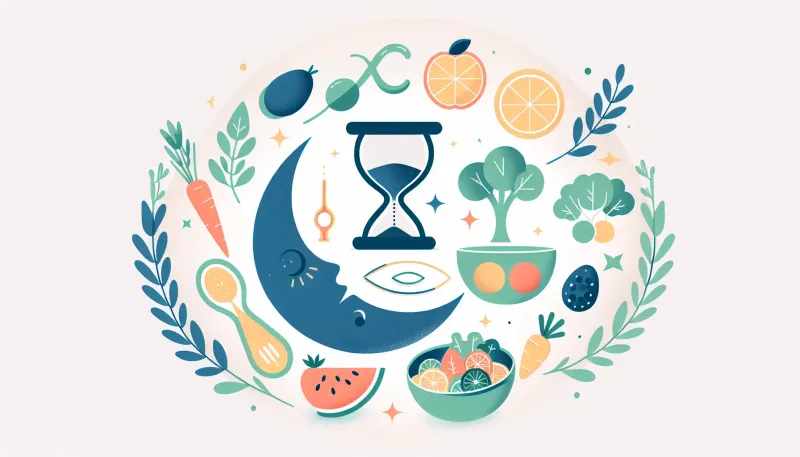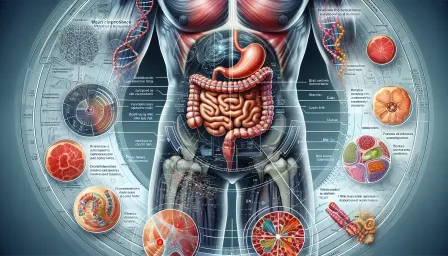The Ultimate Fertility Diet Plan for Getting Pregnant: Boost Your Chances of Conception

Discover the ultimate fertility diet plan for getting pregnant. Learn how to boost your chances of conception with expert advice on nutrition and lifestyle changes.
Many couples face challenges when trying to conceive, often wondering if there's more they can do to boost their chances. One of the most impactful areas to consider is nutrition. The fertility diet plan for getting pregnant involves a comprehensive approach to enhancing reproductive health through dietary choices. This article will guide you through the process, providing research-backed recommendations to help you achieve your goal of starting or expanding your family.
Understanding the Fertility Diet
A fertility diet is a nutritional plan designed to support and enhance reproductive health. It focuses on consuming foods rich in essential vitamins and minerals, antioxidants, and other nutrients that contribute to hormonal balance and overall health. Proper nutrition can positively influence ovulation, egg quality, and sperm health, all of which are crucial for conception.
Key Nutrients for Fertility
Incorporating specific nutrients into your diet is critical for boosting fertility. Here are some of the most important ones:
Folic Acid
Folic acid is crucial for DNA synthesis and repair, reducing the risk of neural tube defects in the developing fetus. It's essential for both men and women. Foods rich in folic acid include leafy green vegetables, fruits, nuts, and fortified cereals.
Iron
Iron plays a significant role in carrying oxygen to your cells, and a deficiency can affect ovulation. Iron-rich foods include lean meats, beans, lentils, spinach, and fortified grains.
Omega-3 Fatty Acids
Omega-3 fatty acids improve blood flow to reproductive organs and help regulate hormones. Excellent sources include fish like salmon and tuna, flaxseeds, chia seeds, and walnuts.
Antioxidants
Antioxidants such as vitamins C and E, beta-carotene, and selenium combat oxidative stress that can damage eggs and sperm. Berries, nuts, seeds, and leafy greens are rich in these essential nutrients.
Foods to Include in Your Fertility Diet Plan
Let's delve deeper into specific foods that can form the core of your fertility diet plan:
Leafy Greens
Leafy greens such as spinach, kale, and Swiss chard are packed with essential nutrients like iron, calcium, and folate. They help in reducing inflammation, supporting hormonal balance, and providing antioxidants.
Whole Grains
Whole grains like brown rice, quinoa, and oats are high in fiber, which aids in blood sugar regulation and hormonal balance. They also provide essential vitamins and minerals vital for reproductive health.
Lean Proteins
Lean proteins, including poultry, fish, beans, and legumes, are fundamental for cell repair and hormone production. They also supply crucial amino acids that support the reproductive system.
Dairy Products
High-fat dairy products, in moderate amounts, have been linked to improved fertility. Consider full-fat yogurt, milk, and cheese, which can provide calcium and other beneficial nutrients.
Fruits and Vegetables
A colorful array of fruits and vegetables ensures a wide variety of antioxidants and vitamins. Berries, citrus fruits, bell peppers, and sweet potatoes are particularly beneficial.
Foods to Limit or Avoid
While certain foods can enhance fertility, others may have a negative impact. Here are some to limit or avoid:
Trans Fats
Trans fats, found in many processed and fried foods, can negatively affect insulin sensitivity and inflammation, potentially disrupting ovulation. Avoiding foods laden with trans fats is crucial.
High-Sugar Foods
Consuming excessive sugar can lead to insulin resistance and hormonal imbalances. Limiting sugary snacks, desserts, and sugary beverages is advisable.
Excessive Caffeine
While moderate caffeine consumption is generally safe, excessive intake has been linked to fertility issues. It's best to limit caffeine intake to about 200-300 mg per day (the equivalent of about 1-2 cups of coffee).
Alcohol
Regular alcohol consumption can negatively affect fertility in both men and women. It's advisable to minimize or avoid alcohol when trying to conceive.
Additional Lifestyle Changes to Boost Fertility
Beyond diet, several lifestyle changes can enhance your chances of conception:
Maintain a Healthy Weight
Being either underweight or overweight can disrupt hormonal balance and ovulation. Aim for a healthy, stable weight through balanced diet and regular exercise.
Practice Stress Management
Stress can adversely affect fertility. Incorporating stress-reducing practices like yoga, meditation, deep breathing exercises, and hobbies can be beneficial.
Get Regular Exercise
Regular physical activity improves overall health and can enhance fertility. Strive for a balanced exercise routine that includes both aerobic and strength-training activities.
Avoid Smoking
Smoking has detrimental effects on fertility, impacting egg and sperm quality. Quitting smoking can significantly improve your chances of conceiving.
Conclusion
Creating a fertility diet plan for getting pregnant involves making informed, health-conscious choices that support your reproductive health. By focusing on key nutrients, incorporating a variety of fertility-boosting foods, and adopting healthy lifestyle habits, you can enhance your chances of conception. It's always wise to consult with healthcare providers or a registered dietitian to personalize your plan and ensure you're meeting all your nutritional needs.
Remember, patience and consistency are crucial. With dedication and the right approach, you can take significant steps toward starting or expanding your family. Best of luck on your fertility journey!



























